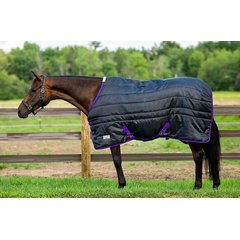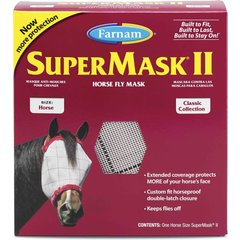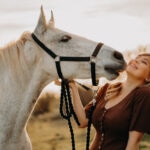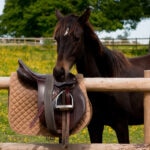How Long Do Horses Live?

Photo by Callipso/iStock / Getty Images Plus
How Long Do Horses Live?
The average life expectancy of well-kept, domestic horses is 25–30 years. On the other hand, wild horses like mustangs, who have to fend for themselves out in the elements, tend to have shorter lifespans of around 15–20 years.
“As we’ve gained more knowledge of horse anatomy, health, and optimal care, the average lifespan of horses in captivity has expanded dramatically,” says Courtnee Morton, DVM, CVA, a Chewy telehealth veterinarian and the owner of Southern Comfort Equine, in Carlton, Texas.
Factors That Can Affect a Horse's Lifespan
A horse’s breed and genetics can affect their lifespan, as some breeds are hardier than others while some are more susceptible to genetic disorders. Also, smaller breeds and ponies tend to have longer lifespans than larger breeds like draft horses.
In addition, injuries and health problems such as colic can be serious and significantly shorten a horse’s life even when treated properly, according to Jennifer Schott (Fordham), DVM, associate veterinarian at Lineberger Veterinary Hospital, in Gastonia, North Carolina.
But there’s a lot horse owners can do to help their equine companions live their longest lives. With good care (including hoof care and dental care), a high-quality diet, a safe and clean environment, an active lifestyle, and consistent veterinary attention, horses can live to old age. Many can even surpass their average life expectancy by many years.
The chart below features popular horse breeds and their average lifespans:
| Horse Breed | Average Lifespan |
|---|---|
| American Paint Horse | 30 years |
| American Quarter Horse | 25+ years |
| American Saddlebred | 30+ years |
| Andalusian | 25 years |
| Appaloosa | 30 years |
| Arabian | 25–30 years |
| Clydesdale | 20–25 years |
| Dartmoor Pony | 25–30 years |
| Dutch Warmblood | 20+ years |
| Friesian | 25 years |
| Hackney | 20–35 years |
| Haflinger | 25–30 years |
| Hanoverian | 20–35 years |
| Icelandic Horse | 30 years |
| Lusitano | 25–30 years |
| Morgan | 30 years |
| Oldenburg | 30 years |
| Paso Fino | 25–40 years |
| Percheron | 25–30 years |
| Shetland Pony | 20–30 years |
| Shire | 25–30 years |
| Thoroughbred | 25–35 years |
Fun Fact: According to Guinness World Records™, the oldest horse in history was Old Billy. He was born in the United Kingdom in 1760 and died in 1822 at the age of 62.
Horse Life Stages
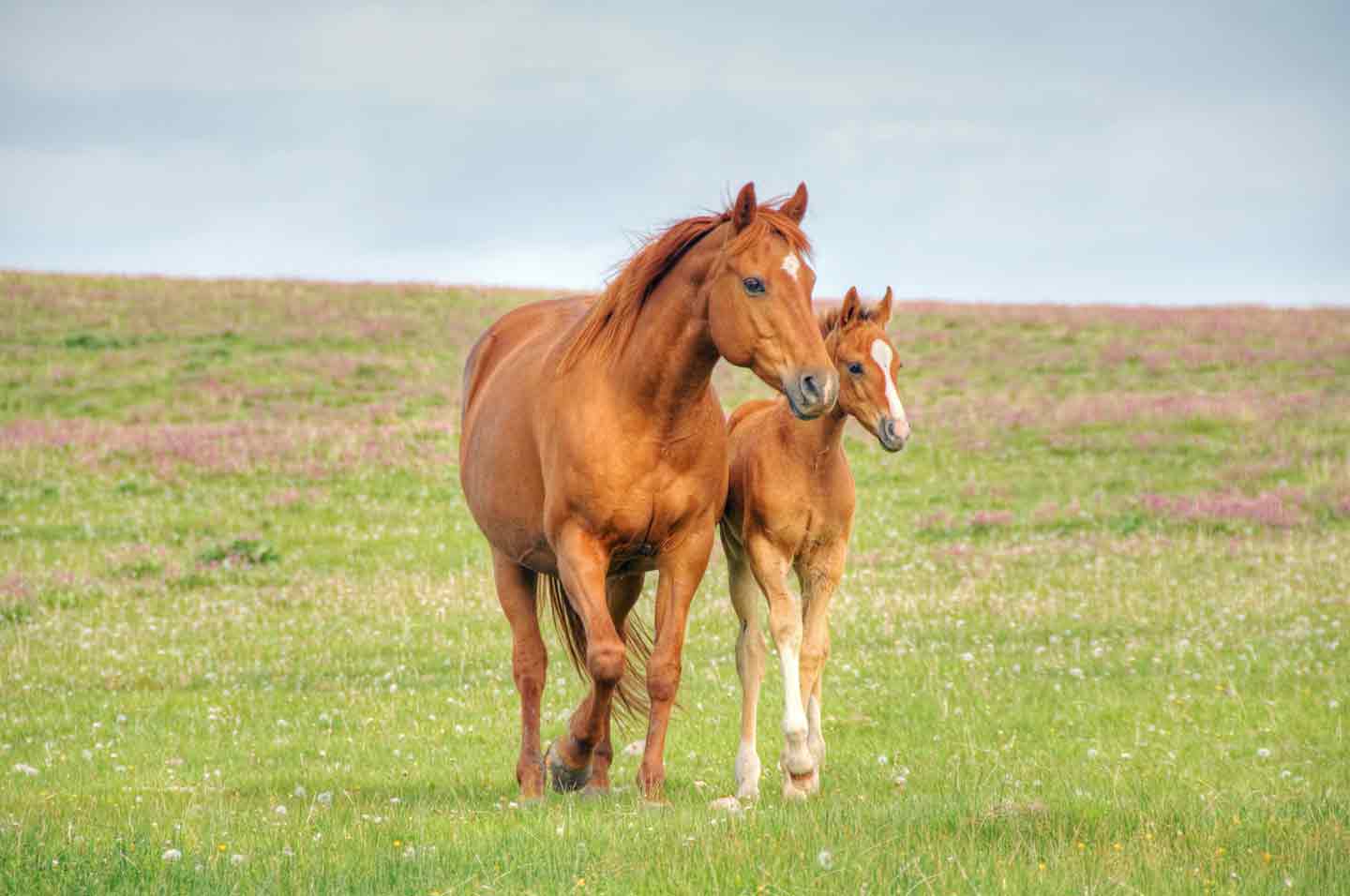
Wildroze/E+
Horses move through several stages of development as they grow and mature. “Not all breeds or individuals reach these milestones at the same time, especially later in life,” says Dr. Morton.
Newborn (Birth to Weaning)
“Foals are very dependent on their mothers the first few months of life. A horse is a foal from birth until they are weaned from their mother. This may be anywhere between 4 to 8 months of age,” says Dr. Morton.
Dr. Schott adds that foals are very fragile and prone to illness and injury, even though they can stand within hours of being born.
Weanling (Up to 1 Year Old)
A weanling is a foal who no longer needs to be fed and cared for by their mother. Once they make this transition, they start eating forage (plant material, mainly grasses and legumes) and grain without any milk supplementation.
Yearling (1 to 2 Years Old)
During this important time in your horse’s development, it’s wise to consult a veterinarian if you aren’t sure about what to feed them to ensure their health and strength.
“This is a time of major growth. Proper nutrition is important for a well-balanced diet to support muscle and skeletal growth, avoiding rapid growth that can cause skeletal abnormalities or weakness,” says Dr. Morton.
Adolescent (2 to 4 Years Old)
Colts (males under 4 years of age) and fillies (females under 4 years of age) are adolescents between the ages of 2 and 4. They are still growing, but the majority of their growth plates (areas of developing cartilage tissue) will have closed by the time they’re 3 years old.
Adult (4 to 15 Years Old)
Generally, horses are considered adults at around 4 years of age. However, at this age, their skeleton is not yet mature.
“Horses are not fully grown and developed until between 5 and 7 years old,” says Dr. Schott. “Between 7 and 15 years old is mature age, and not many changes will happen during this time.”
“The early years of adulthood are the peak of athleticism and fitness for many horses,” adds Dr. Morton.
Senior (15+ Years Old)
A horse is typically considered a senior when they are 15 and older. At this time in their life, your horse might show some obvious signs of aging. They also might develop more health issues, such as dental problems, laminitis, Cushing’s disease, or arthritis, and may be slower than they used to be.
But aging horses can still be active. “While 15 was once considered very old for a domestic horse, many still are competitive into their late teens, and some veterinarians now consider a geriatric or senior horse to be one in their 20s or older,” says Dr. Morton.
Common Causes of Death in Horses
Horses can develop a variety of infections and conditions that could become life-threatening, such as neurologic issues or problems affecting the heart, digestive tract, or nervous system.
Some of the common causes of death in horses include:
Colic
Colic is a common cause of death in horses, according to Dr. Schott and Dr. Morton. It has several causes, such as enteritis (inflammation of the intestine), twisting of the intestine, or impaction of food. “Many times, horses need intensive medical care or surgery to recover from more serious episodes of colic,” says Dr. Schott.
Laminitis
Also known as founder, laminitis is characterized by inflammation of the laminae in a horse’s hoof. It leads to symptoms like lameness and pain, and can be caused by other health problems, injuries, improper feeding, or exposure to toxins. Without prompt veterinary attention, it can worsen, resulting in permanent damage and death.
Navicular Disease
Also known as navicular syndrome, this is another condition that affects the hooves, targeting structures that include the navicular bone, navicular bursa, and deep digital flexor tendon (DDFT). Middle-aged horses may show symptoms such as forelimb lameness, and the problem progresses as the horse ages. However, treatments can manage some of the discomfort.
Injuries
Horses of all ages can injure themselves, especially racehorses and those in eventing. But Dr. Schott says that ailments like broken legs or severe tendon/ligament injuries are more common in younger horses, and can be fatal.
Most horses don’t die of old age, though “many horses pass away from health issues that can be related to their age or exacerbated by their age,” says Dr. Schott.
Also, older horses may take longer to recover from medical problems and surgical procedures, and humane euthanasia might be recommended rather than putting them through extensive treatments.
How To Increase Your Horse's Lifespan

DuxX/iStock / Getty Images Plus
Regardless of the average lifespan of a horse breed, you can take steps to help increase the odds that your companion will live a long, healthy, and happy life. Here are some things you can do, whether you have a young or senior horse:
Provide Routine Veterinary Care
Routine healthcare for horses includes:
- Vaccinations
- Deworming
- Dental care
- Hoof care
- Yearly checkups
Work with an equine veterinarian and farrier to diagnose problems and give your horse the appropriate treatments when needed.
You can also talk to your vet about normal signs of aging and what to expect as your horse gets older. That way, you can increase the odds that you’ll be able to address problems in their early stages.
Provide a Balanced Diet
“Poor diet can lead to issues like colic or laminitis,” says Dr. Schott.
“A horse’s digestive system does best when grazing for roughly 16 hours a day, rather than eating a few large meals. Horses should always have free access to fresh water,” adds Dr. Morton.
Work with your veterinarian to determine how much to feed your horse daily to maintain a healthy weight and give them the energy they need for their activity level. You might also need to change your horse’s diet and supplements as they age. Senior horses, for instance, may need food that’s more digestible.
Provide Protection and Reduce Stress
To ensure your horse’s physical and mental well-being, make sure they have clean and safe indoor and outdoor environments where they’ll spend time exercising and relaxing each day and night. Use products like stable blankets, turnout blankets, and fly masks to protect them and keep them comfortable.
Also, don’t overwork or overexercise your horse. Reduce their stress when traveling with them. Use positive, gentle training methods—never be harsh. And provide enrichment with horse toys that keep them mentally stimulated.
Recommended Products
Expert input provided by Jennifer Schott (Fordham), DVM, associate veterinarian at Lineberger Veterinary Hospital, in Gastonia, North Carolina; and Courtnee Morton, DVM, CVA, owner/veterinarian at Southern Comfort Equine, in Carlton, Texas, and a Chewy telehealth veterinarian.
This content was medically reviewed by Chewy vets.
